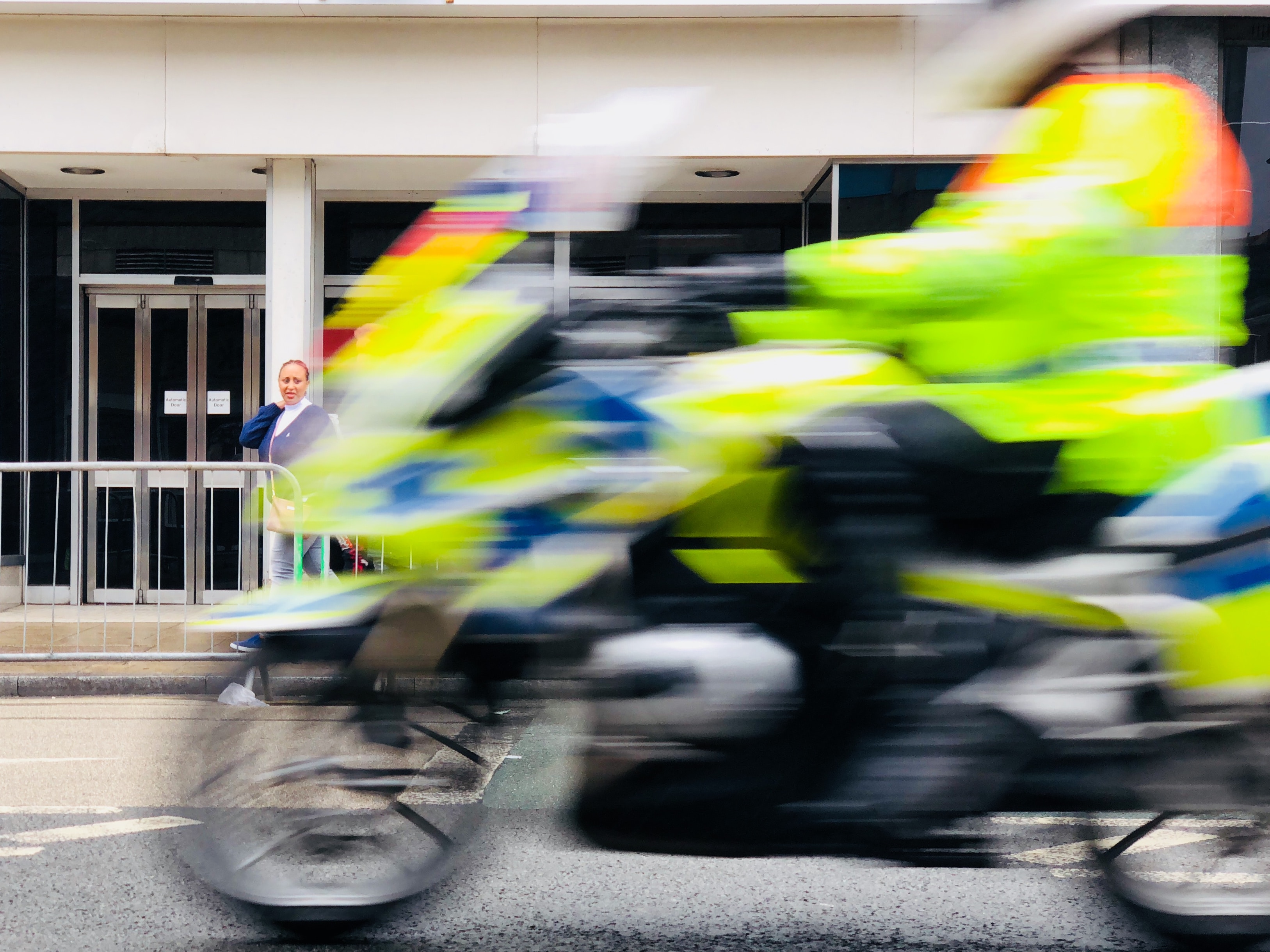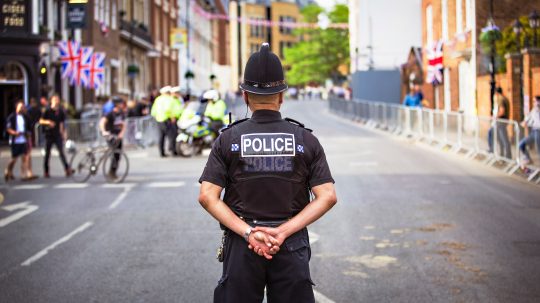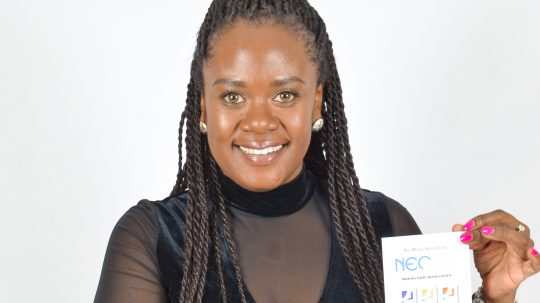Dawn Butler, Labour MP for Brent Central, has accused the police of racial profiling after officers stopped her and her friend as they drove through east London on Sunday.
The incident has sparked another national conversation about the treatment of Black people by police in Britain, even prompting a response from Prime Minister Boris Johnson.
It comes during a summer when Black Lives Matter protests have spread across the globe, shining a light on police treatment of Black people.
EachOther looks at five key questions around potential discrimination in how Britain’s roads are policed.
What happened?
Butler and her friend were pulled over by two police cars on Sunday; her friend, who is also Black, was driving their BMW through Hackney.
The police officers took the keys during the stop, and claimed the reason they pulled the car over was because the car was registered in North Yorkshire.
The officers also questioned Butler on where she lived, and where she was going.
I JUST GOT STOPPED BY THE POLICE DRIVING THROUGH HACKNEY… MORE DETAILS TO FOLLOW…@metpoliceuk
I recorded the whole incident.
— Dawn Butler MP✊🏾 (@DawnButlerBrent) August 9, 2020
Butler filmed the incident, and in the video one of the police officers wrongly states the tinted windows at the back of the car could be illegal and requested to look inside.
After being challenged by Butler, police said they had entered the car’s registration number incorrectly into their computer, explaining why they thought it was from North Yorkshire.
They returned the keys and did not search the car.
On what grounds could police stop her car?
Hackney Police tweeted the car had been stopped under the Road Traffic Act 1988.
Section 163 of the Act states that a “person driving a motor vehicle on a road must stop the vehicle on being required to do so by a constable in uniform”.
Failing to stop when indicated by a police officer is a criminal offence, and can result in an unlimited fine, up to six months’ imprisonment, and even disqualification from driving.
Officers currently do not have to have a particular reason to stop a vehicle or explain themselves, according to the College of Policing, although it adds that officers who explain themselves will likely “improve the quality of the encounter”.
Police said they stopped the car because they incorrectly thought it was registered to North Yorkshire, not Hackney.
But questions remain unanswered around why the police apparently decided to manually type the car’s registration plate into their system, and why a car from North Yorkshire would need to be stopped if passing through Hackney.
Research by police monitoring charity StopWatch, and human rights charity Liberty, suggests there are over 5.5 million traffic stops each year.
Is this discriminatory?
Following the incident, Butler accused the police of racially profiling her, and institutional racism.
Human rights groups have long expressed concerns around disproportionate use of vehicle stops under the Road Traffic Act against Black people.
In 2017, police accountability charity StopWatch and Liberty co-authored the “Driving whilst Black” report.
Katrina Ffrench, chief executive of StopWatch, spoke of how the tactic continues to lack basic safeguards such as recording and monitoring, as it falls outside the guidance on stop and search.
“It’s been 21 years since the Stephen Lawrence inquiry and MacPherson report, which recommended that all stops were recorded – and they are [still] not being recorded,” she told EachOther.
“It’s very hard to talk about having more accountability when there’s no data collection mechanisms in place to prove there’s disproportionality.”
This is not the first high-profile police stop in the UK recently: last month, athlete Bianca Williams was pulled over and handcuffed by police – next to her partner, Ricardo dos Santo, and her child when driving home in west London.
The police said they had stopped the vehicle because it had been driving suspiciously and on the wrong side of the road, and made off “at speed” – and that they were detained under section 1 of the Police and Criminal Evidence Act 1984.
The case garnered a lot of publicity, with Williams saying she feels like “being Black is a crime”, calling for a “rigorous” investigation, and threatening the police with legal action; the police subsequently apologised, and referred itself to The Independent Office for Police Conduct (IOPC).
Black people in England and Wales are 40 times more likely than white people to be stopped and searched without suspicion.
The issue intensified during lockdown, with Met police carrying out around 22,000 searches on young Black men during lockdown – around one third of all young Black men in the capital, with over 80% leading to no further action.
Are police vehicle stops effective?
The failure to routinely record or monitor traffic stops also means it is difficult to assess how effective they are.
Ffrench added: “What [we] are calling for is a tighter use of the power, not for the abolishment of it themselves.
“It’s not being done in a fair, proportionate way, and police forces should face sanctions if they persistently demonstrate discrimination.”
If the vehicle stop results in officers searching a car, it is then considered a stop and search and the details are logged.
Data shows that, in the year to March 2019, only 15% of stop and searches (58,251) in England and Wales under Section 1 of the Police and Criminal Evidence Act resulted in arrests.

Credit: Unsplash / John Cameron
What next?
The incident has prompted statements from various politicians – including Prime Minister Boris Johnson, who said police should treat people with “fairness and equality”.
However, Johnson stopped short of agreeing with Butler, stating that he does not believe the police are institutionally racist.
Butler seemed to confirm the police’s offer to discuss the incident on Twitter, stating on Monday: “I’m speaking to current police officers.
“Working together to make the system better.”
Writing for The Guardian, she also said: “When it comes to being pulled over by police on the road, despite the fact it is used around 5.5 million times a year, Section 163 stops are not subject to basic safeguards such as reporting requirements.
“We need to know how many people stopped were racially profiled and what the reasons were for being stopped.”
She added: “This institutional racism towards people of colour has been going on for many years – now it’s time to put all the people in a room together and make the change happen.”



